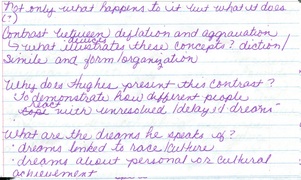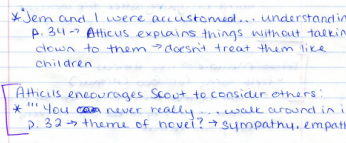INVENTINGHaving close-read and annotated your primary text, the next phase of the writing process, inventing, requires you to gather the many observations your close-reading has produced and shape them into core ideas and themes. This is where you begin an exciting exploration of the text, bush-whacking your way through language and theories. One of the primary goals of inventing is to generate a working theme and interpretation. A theme is central idea or meaning of a literary work. The following strategies will help you begin generating significant ideas about a literary work.
|
Brainstorm Workout“Inventing doesn’t have to occur while you’re sitting at your desk in front of a blank page. I like to think about the work I’m analyzing and brainstorm while I walk across campus in between classes. You can even invent while you’re working out. Sometimes all you need is a little physical activity to get the juices flowing!” – Mary
Take a break and appreciate…“Inventing is my favorite part of the writing process because this is where I really get a grasp on what it is that I am going to write about. If I enjoyed the text that I read, this is the part where I get to be passionate and form ideas with the themes that stood out to me. I like to give myself at least a day or two after finishing a text before I start inventing, just so I can really absorb it all and appreciate it.” – Carli
|




